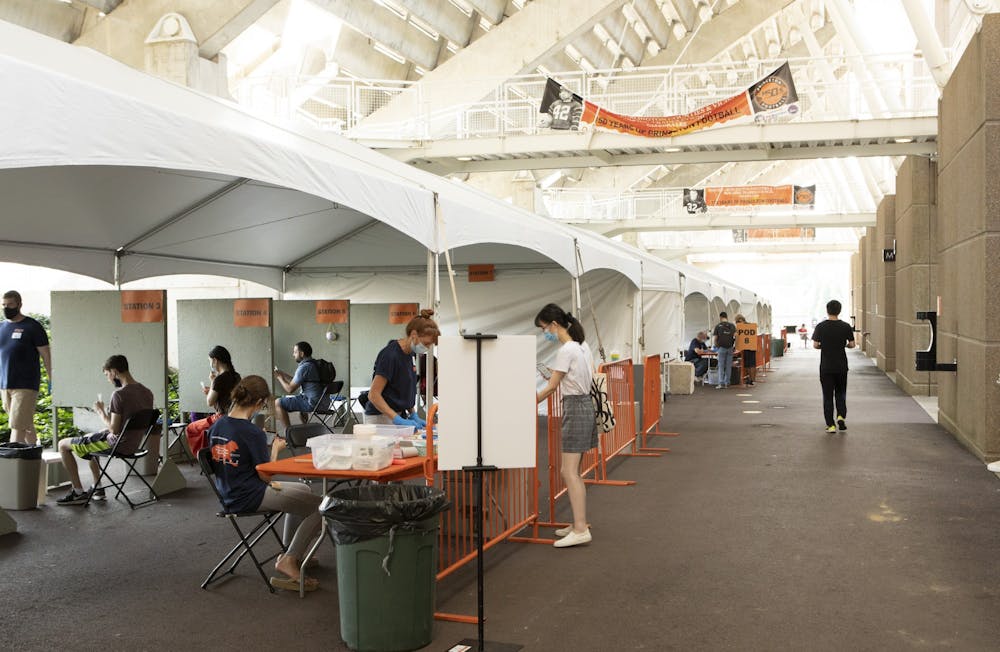The following is a guest contribution and reflects the author’s views alone. For information on how to submit an article to the Opinion Section, click here.
In September 2018, I spent eight days over a span of two weeks in the McCosh Infirmary, bed-ridden with a stubborn peritonsillar abscess that made eating, drinking, and breathing not only difficult but very painful. I was barely three weeks into my academic career at Princeton, and I had already missed more than 50 percent of my classes.
Countless emails with my professors and residential college staff followed as I struggled to catch up on all the lectures, precepts, and assignments I had missed. While not an impossible endeavor, the effort required to keep pace became a tremendous burden.
With my illness persisting even beyond my stay at McCosh, I ultimately decided to take a leave of absence not even halfway into my first semester. It was a decision motivated primarily by medical reasons, as I would soon require surgery to fully heal, but I must emphasize that the difficulty of catching up with schoolwork after such a long illness also contributed to my need to take time off to recuperate and recharge.
I share this experience with a prolonged illness at Princeton out of concern over the seeming lack of any formal or standard plan for how students and faculty should handle a required quarantine or isolation due to COVID-19. Simply put, possibly having a friend FaceTime you into a class as Dean of the College Jill Dolan suggested at the recent Town Hall meeting is not a sufficient plan. And, in the absence of one, students and faculty must develop their own.
When I heard Dean Dolan’s explanation that residential college staff and professors are expected to help those in quarantine or isolation stay caught up, I thought of my personal experience with the incredibly understanding and accommodating residential college staff and professors. However, the past spring semester also demonstrated that not every student receives equally understanding and compassionate responses when they need help.
I understand that Princeton’s approach to academic freedom heavily restricts the University administration’s power over professors’ teaching, including course policy or structure. I would not be surprised if this was a contributing factor to the lack of a standardized response to student quarantine or isolation.
However, the limits of administrative power do not magically erase the very real context of a pandemic or the need for student support. Yes, the expectation with a highly-vaccinated campus population is that COVID-19 case numbers will be incredibly low. Low, however, is not zero, and we have already seen outbreaks among vaccinated students elsewhere.
Timed just right, ten days of isolation could put a first-year student at risk of being unable to complete Writing Seminar due to their (in)famously strict attendance policy. Similarly, ten days of isolation could harm students’ progress in introductory language courses, where attendance is also highly emphasized. These examples barely scratch the surface of the academic challenges that a quarantine or isolation would provoke.
With this in mind, and with the understanding that a University-wide policy may not be an option, now is the time for faculty and students to develop a plan that prevents students from falling through the cracks. Much like first-year students agree to a roommate contract at the beginning of the year to save headaches when an issue arises later on, figuring out how to address quarantine and isolation now will reduce stress later in the semester.
To professors and departments across the campus, I ask that you add a section addressing COVID-19-related quarantine and isolation to your syllabi right alongside the attendance, academic integrity, grading, and other policies. This could include making live-streamed or recorded lectures available for students not able to attend class. For smaller seminars and precepts, this could include the assurance that students in quarantine or isolation will be able to Zoom into class instead of relying on a classmate’s willingness to FaceTime.
To my fellow students, I implore you to search for such policies as syllabi become available to view on Canvas. And if no such policies are mentioned, make this issue one of the very first questions you ask once classes begin on Sept. 1. This way, a student — and it could be you — who does have to quarantine or isolate later in the semester has fewer reasons to worry as they await a negative test result or fight through symptoms.

Ever since I spent those eight days under the wonderful care of the McCosh doctors and nurses, I’ve learned a lot about the support Princeton offers to struggling students. At times, I’ve never been more grateful for Princeton’s support, while at other times I feel nothing but frustration about the lack thereof. Still, as we head back to campus, hoping for a more “normal” semester, I hope we take the lessons learned from past semesters and all contribute to fostering a healthier, more supportive living and learning environment.
José Pablo Fernández García is a junior from Loveland, Ohio. He is an Associate Editor for The Prospect. He can be reached at jpgarcia@princeton.edu.








